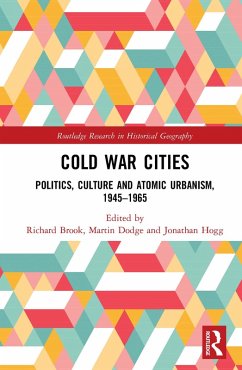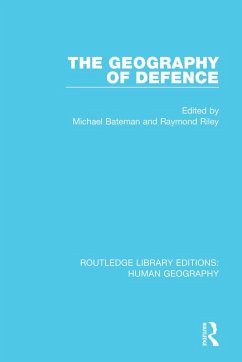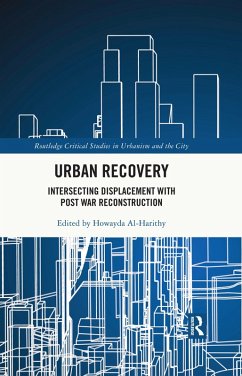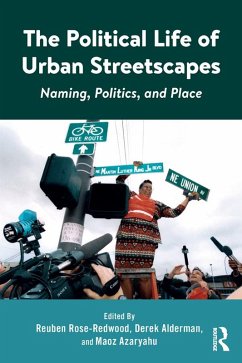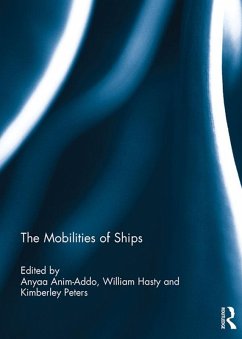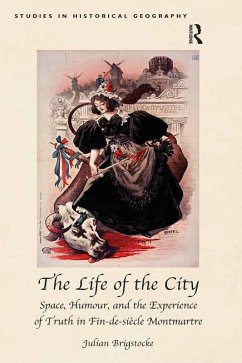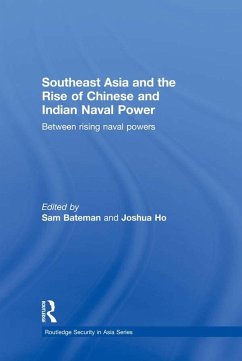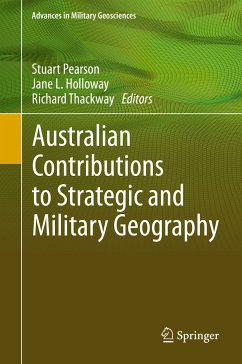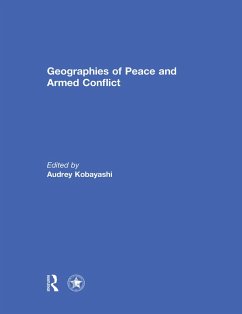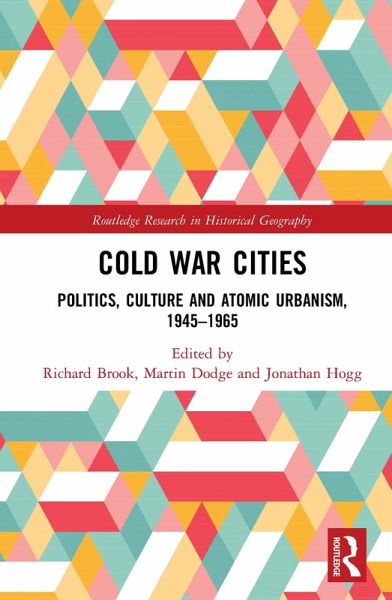
Cold War Cities (eBook, PDF)
Politics, Culture and Atomic Urbanism, 1945-1965
Redaktion: Brook, Richard; Hogg, Jonathan; Dodge, Martin
Versandkostenfrei!
Sofort per Download lieferbar
41,95 €
inkl. MwSt.
Weitere Ausgaben:

PAYBACK Punkte
21 °P sammeln!
This book examines the impact of the Cold War in a global context and focuses on city-scale reactions to the atomic warfare. It explores urbanism as a weapon to combat the dangers of the communist intrusion into the American territories and promote living standards for the urban poor in the US cities.The Cold War saw the birth of 'atomic urbanisation', central to which were planning, politics and cultural practices of the newly emerged cities. This book examines cities in the Arctic, Europe, Asia and Australasia in detail to reveal how military, political, resistance and cultural practices imp...
This book examines the impact of the Cold War in a global context and focuses on city-scale reactions to the atomic warfare. It explores urbanism as a weapon to combat the dangers of the communist intrusion into the American territories and promote living standards for the urban poor in the US cities.
The Cold War saw the birth of 'atomic urbanisation', central to which were planning, politics and cultural practices of the newly emerged cities. This book examines cities in the Arctic, Europe, Asia and Australasia in detail to reveal how military, political, resistance and cultural practices impacted on the spaces of everyday life. It probes questions of city planning and development, such as: How did the threat of nuclear war affect planning at a range of geographic scales? What were the patterns of the built environment, architectural forms and material aesthetics of atomic urbanism in difference places? And, how did the 'Bomb' manifest itself in civic governance, popular media, arts and academia? Understanding the age of atomic urbanism can help meet the contemporary challenges that cities are facing.
The book delivers a new dimension to the existing debates of the ideologically opposed superpowers and their allies, their hemispherical geopolitical struggles, and helps to understand decades of growth post-Second World War by foregrounding the Cold War.
The Cold War saw the birth of 'atomic urbanisation', central to which were planning, politics and cultural practices of the newly emerged cities. This book examines cities in the Arctic, Europe, Asia and Australasia in detail to reveal how military, political, resistance and cultural practices impacted on the spaces of everyday life. It probes questions of city planning and development, such as: How did the threat of nuclear war affect planning at a range of geographic scales? What were the patterns of the built environment, architectural forms and material aesthetics of atomic urbanism in difference places? And, how did the 'Bomb' manifest itself in civic governance, popular media, arts and academia? Understanding the age of atomic urbanism can help meet the contemporary challenges that cities are facing.
The book delivers a new dimension to the existing debates of the ideologically opposed superpowers and their allies, their hemispherical geopolitical struggles, and helps to understand decades of growth post-Second World War by foregrounding the Cold War.
Dieser Download kann aus rechtlichen Gründen nur mit Rechnungsadresse in A, B, BG, CY, CZ, D, DK, EW, E, FIN, F, GR, HR, H, IRL, I, LT, L, LR, M, NL, PL, P, R, S, SLO, SK ausgeliefert werden.




